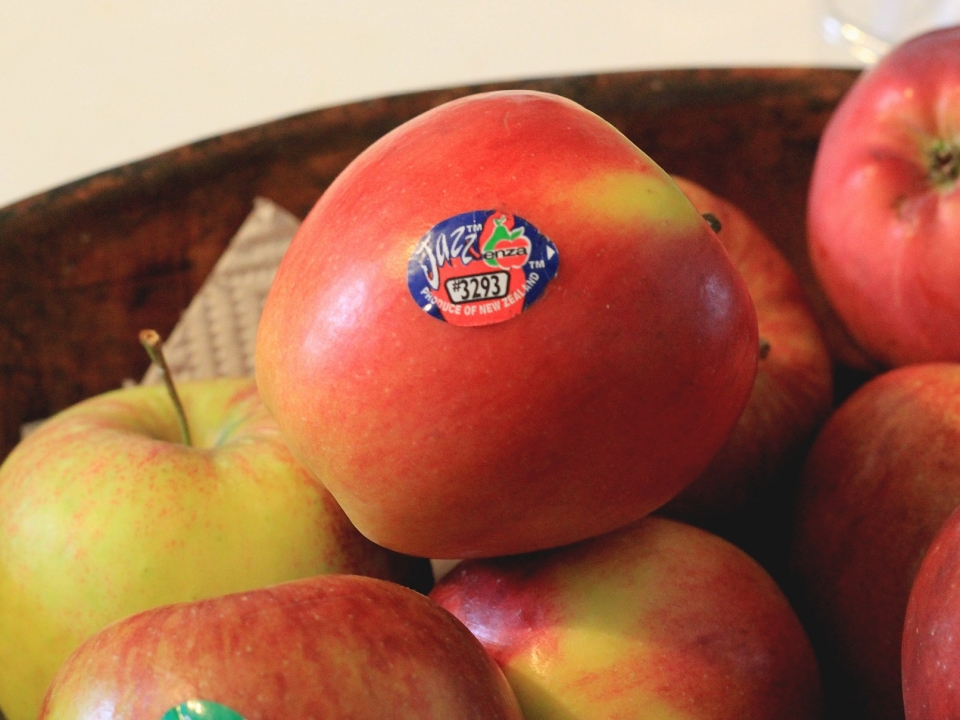When people buy apples, they are looking for apples that:
- taste good
- look good
- are not easily damaged
- have a long shelf life.
Selective breeding makes better apples that are worth more.
The best apples
People buying apples want an apple that looks good. Apples need to be free of damage from pests or diseases. New Zealand’s climate gives apples a bright colour. This means New Zealand apples sell for a higher price overseas.
Most people want apples that are crisp and juicy. People don’t want apples that are soft and dry. Breeding new varieties with good texture and crunch is important. New Zealand apples must travel a long way to get to overseas markets. Apples need to cope with this transport, so that they still look and taste good when they arrive.
Apples also need to have a good shelf life. People may need to store apples for a long time.
Selective Breeding
People have selectively bred plants and animals for thousands of years. Today’s apples are the result of selective breeding. This breeding improves:
- flavour
- texture
- colour
- storage and other traits.
Apple varieties are being tested to see whether they can be stored for a long time without lose of quality. Breeders have learned about apple genes. This genetic information can make the breeding process easier and faster. Scientists can now find out about certain traits in apples. They may look for which apple seedlings have traits such as red flesh or less disease. Then they can use these seedlings to breed from.
Grafted trees
In orchards apples are not grown on their own roots. Apple seedlings are grafted onto root stocks that control the growth of the tree. Breeders use root stocks which:
- will grow apples quickly
- grow to a certain size
- be free of pests and diseases.
New Zealand-bred apples 
New Zealand has led the world in developing new apple varieties. Royal Gala and Braeburn are important to New Zealand and overseas growers. Royal Gala was a natural change in the Gala variety back in the 1970s. Braeburn was a chance seedling growing in the Braeburn area of Nelson in the 1950s. It was widely planted in the late 1980s and early 1990s.
More recently scientists have created apple varieties like Jazz™. Jazz™ comes from a Braeburn–Royal Gala cross. Scientists from Plant & Food Research are currently working on developing new apple varieties. This research aims to create better quality apples. Some of these apples may have different colours and health benefits.
Ready for a quiz? Try the "Selective Breeding Apples" interactive activity.







